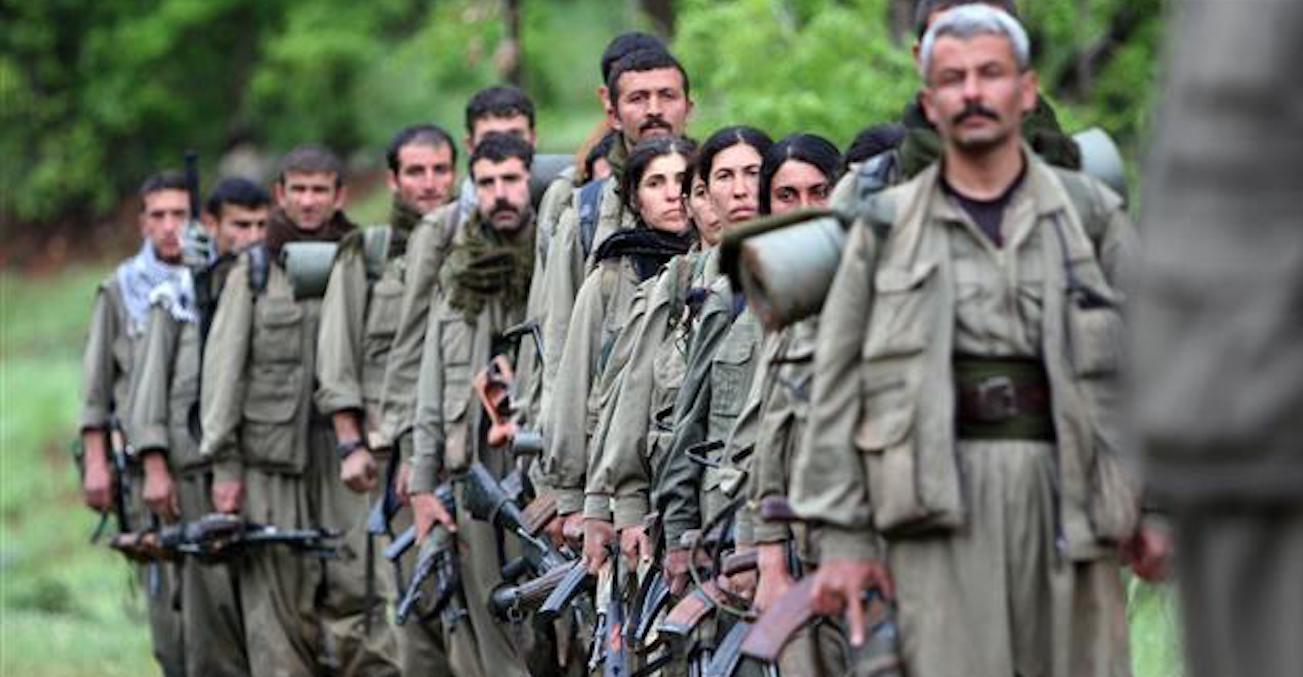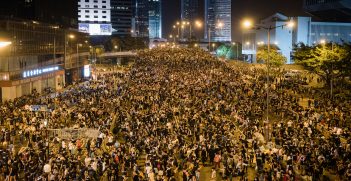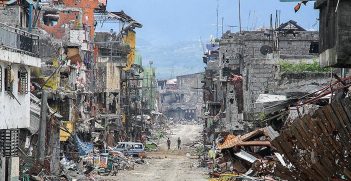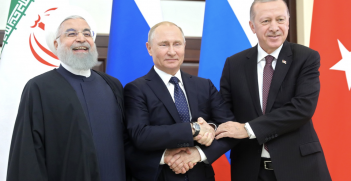The Fall of Syria's Afrin

The fall of Afrin on 18 March accomplishes one of the main objectives of the Turkish military operation code-named ‘Olive Branch’. What are the implications for the US, its Kurdish allies and the course of the conflict?
In Turkey, the fall of Afrin has been met with great celebration. This type of nationalistic outpouring is exactly what Turkish President Recep Erdogan has been waiting for impatiently. Many domestic Turkish observers and pundits have been critical of Erdogan’s Syrian strategy and have pointed to the financial hardship of housing so many Syrian refugees. Now Erdogan’s Syrian gamble, which was to oppose Assad from the beginning, has appeared to pay off.
The blow against the so-called Kurdish terrorists known as the PYD coincides with the 103rd anniversary of the great Turkish victory at Gallipoli over the French, British and Australians in 1915. The Turkish press—some fractious elements of which are either sitting in prison and/or out of a job—have responded in kind to the immense outpouring of Turkish national ardor. Even the street on which the American Embassy is located in Ankara has been renamed Olive Branch Street in honour of the ongoing military operation in Afrin and northern Syria.
With the fall of Afrin, the American dream of putting together an all-Kurdish 30,000 member force to repress any return of the Islamic State (IS) is now dead in the water. By the Turkish manoeuvre, Ankara has also effectively crushed the Kurdish mini-state idea along the Turkish border and neutralised American-armed People’s Protection Units (YPG) forces in Manbij to the east. The US forces are now basically doing for free what the Turks have done in Afrin: that is, managing and controlling their Kurdish allies and preventing attacks on targets inside Turkey. The Turks do not need to move east since the Americans are already doing their job for them. This fact also plays into the outpouring of Turkish nationalism, a part of which studies have shown to be based on anti-American sentiment.
Erdogan has effectively out-foxed the belated American response to arm the Kurds. The fall of Afrin has struck a serious blow to the role of US forces in addition to safeguarding Turkish soil from any potential Kurdish attack. The PYD are left holding the bag with no mini-state and no 30,000-man armed force along the Turkish border. They are now required to watch the conduct of the Turkish operation. US forces cannot oppose Turkish forces even if they choose to move on to Manbij and further.
The spectacle of two NATO partners duking it out in Syria would make even Putin smile. The present American mandate of arming and training the Kurds has been dealt a serious blow and gives credence to the view that America has no role in Syria. Meanwhile, US forces must manage their YPG forces and prevent any attacks on Turkish soil. NATO obligations would require no less. The US State Department is in disarray after the ugly firing of former United States Secretary of State Rex Tillerson; its reaction to the fall of Afrin, calling for caution, smacks of a lack of leadership.
Trump’s rudderless foreign policy déconfiture has meant that Turkey is a key player in Syria. The US is not.
The loss of Afrin is a reminder for the Kurds that without a regional champion to support their cause for rights and a homeland, little can be accomplished. Poor leadership, generational and ideological cleavages and, especially, too much trust in the West has been their downfall. The West was content to have the Kurds take on IS and destroy it, but payment may be very long in coming. The best choice would have been to support Kurdish youth when the Syrian crisis broke out by opposing Assad.
The Turkish claim that the Kurdish “terrorists” are united with PKK (Kurdish Workers Party), PYD and others is false and is used as a pretext for Operations Euphrates and Olive Branch.
Ankara has declared that Turkish troops in Afrin are scheduled to leave once they have achieved full control. According to the Turkish Prime Minister Binali Yildirim, Turkey will hand over control to the local population. The question is whether the exodus sparked by the Turkish assault of Afrin has modified the nature and size of that population. It has, with the streams of Kurdish refugees heading for Syrian government lines as proof positive. Why would the Turks hand over territory to a local population only for it to become a PYD-controlled area? Resettlement by Sunni pro-rebel Free Syrian Army (FSA) men and their families is a distinct possibility.
Meanwhile in Eastern Ghouta things are not going well for the Syrian rebels who are being pounded by Syrian state and Russian land and air forces. Some families have ‘escaped’ to government positions while pockets of resistance are being reduced. It was inevitable that sooner or later Assad would need to address the rebel problem just 10 miles from the capital Damascus. What will happen to those who have left Eastern Ghouta remains to be seen. In the past, fears for the worse have often been proved true in the case of Syrian state security agencies.
The events of March 2018 have some observers concluding that the days of easy victories may be over for Assad and his allies. To the north, the fall of Afrin has put the Turks nearer to the frontline and provided a badly needed victory for its FSA allies. Care will have to be taken by Russian and Syrian warplanes when attacking Idlib. If the Syrian government insists on moving into Idlib, a remaining Syrian rebel enclave, casualties will mount. There will be no mercy shown to any Russian or Syrian pilot. Increased casualties will have a direct impact on Russian public opinion, which is much more concerned by Crimea than it is by the Syrian intervention. Moreover, any comparison between the Russian invasion of Afghanistan in 1979 and its intervention in Syria dramatically changes the tone of public opinion in Russia.
To the south, although they are clearing out the rebel enclave near the capital, government forces will have to take care attacking the rebel pockets to the south in Deraa as Israel has increased its military presence throughout 2017 and 2018. Netanyahu’s visit to Moscow in January 2018 was intended to warn Syria via Russia to stay well away from the Israeli border.
The Turkish FSA victory at Afrin means that Syrian government forces, if they want to reduce Idlib like they did Aleppo and Eastern Ghouta, will have to do it in front of the largest army in the region. Bashar al-Assad should not jump to the conclusion that the Turks are now neutral given their adherence to the Astana Group and its peace efforts. Erdogan’s preference is still a Syria minus al-Assad and his cohorts.
And what if Turkey decides to move south or west? Improbable, yes, but what if? From a longer-term perspective, who is going to rebuild the broken cities of Syria? In the absence of any visible international appetite for rebuilding Assad’s Syria, the only reasonable option is Turkey. Its construction companies have considerable expertise gained in places like Iraq, Turkmenistan and elsewhere in the region. Turkey’s proximity to Syria is another reason for its future role. All this must be of concern to the Syrian government authorities as they begin to look beyond the conflict to postwar strategies of reconstruction. Their political crimes will continue to haunt them in this period and make Assad’s continued presence in Damascus an unsuitable option.
Dr Bruce Mabley is the director of the Mackenzie-Papineau Group think tank based in Montreal and devoted to analysis of international politics. He was formerly a Canadian diplomat and served in Turkey at the beginning of the Syrian civil war.
This article is published under a Creative Commons Licence, and may be republished with attribution.





